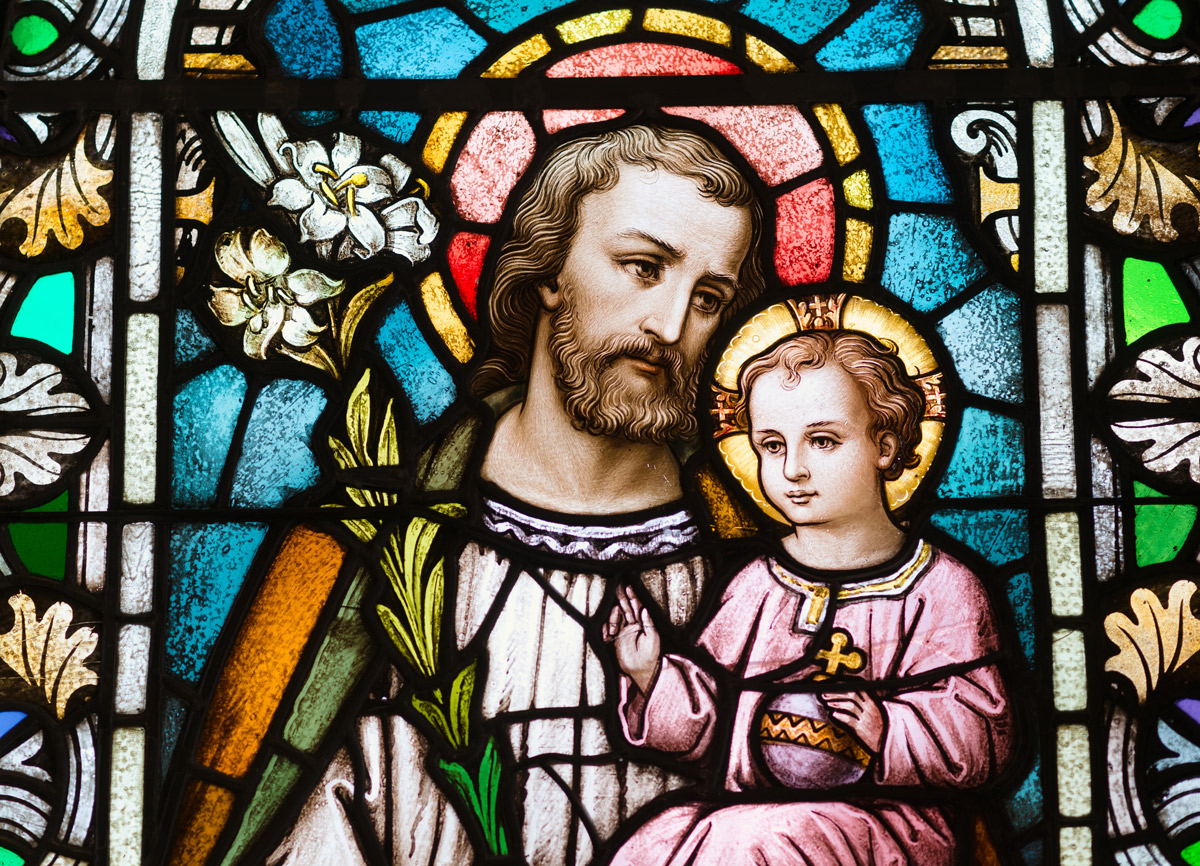By Rose Leigh
We covered the topic of work this month (May 2021) on St. Joseph’s Shelf, partially because May 1st is the feast of St. Joseph the Worker. So as we close out the month, it’s worth looking at a few truths about the value of work through the eyes of our website’s patron saint.
1. Work has inherent dignity.
God chose to send His Son to be born into a poor family. We know from the Bible that Joseph worked as a lowly carpenter (Mark 6:3, Matthew 13:55), working with wood and tools.
Often, we see beautiful paintings of the Nativity where the Virgin Mary and St. Joseph are dressed in gorgeous, expensive clothing of the artist’s time period. While this artistic choice conveys Mary and Joseph’s spiritual wealth and the high honor they had of raising the Christ Child, the Holy Family was certainly not materially rich.
Sometimes in today’s culture, there’s a tendency to look down on those who perform manual labor for a living, but every type of job (as long as it’s moral) has worth, and all workers have dignity no matter how much money they make. You can be a saint with even the most humble of jobs. God doesn’t prefer CEOs over plumbers.
2. Work can be a “daily expression of love.”
Pope St. John Paul II writes in his encyclical Guardian of the Redeemer, “Work was the daily expression of love in the life of the Family of Nazareth” (no. 22). Every spouse is motivated by a deep love to provide for and take care of their family through work; Joseph was no different. He cared for the Virgin Mary and the Child Jesus, working in Egypt and then Nazareth to support the Holy Family.
Work comes in many forms: changing diapers, writing reports, planting crops, overseeing construction sites, cooking meals, etc. Even when work is frustrating and challenging, doing it with a smile is a way to say, “I love you,” to your spouse, children, parents, siblings, friends, or coworkers.
3. Our work should be ordered toward God.
In 1955, when Pope Pius XII established the feast of St. Joseph the Worker, May 1st also marked the communist celebration of May Day. Communism is intrinsically at odds with Christianity; communists call for workers’ rights, but do so in the context of atheism and a forced sharing of property.
The feast of St. Joseph the Worker, in contrast, reminds us of the dignity of work when it is performed virtuously and ordered toward God’s will. Joseph did what God asked of him time and time again, when the Holy Family was uprooted first to Bethlehem, then to Egypt in order to escape the massacre of the innocents. Joseph protected and raised Jesus, helping to fulfill God’s plan to redeem the world.
It’s not enough just to do your job and earn a comfortable salary and benefits (or good grades, if you’re a student). You have a role to play in bringing Christ to the world, and your work, whatever it may be, is part of that.
In Guardian of the Redeemer (no. 24), John Paul II quotes Pope St. Paul VI, who sums up St. Joseph’s importance as an example for all workers:
“St. Joseph is the model of those humble ones that Christianity raises up to great destinies;…he is the proof that in order to be a good and genuine follower of Christ, there is no need of great things—it is enough to have the common, simple and human virtues, but they need to be true and authentic.”

Rose Leigh
Rose has been drawing and writing since she could hold a pencil, creating worlds of giants, fairies, and adventurers from her imagination. She works as a graphic designer and loves discussing the good and creative aspects of literature, art, and film.






0 Comments